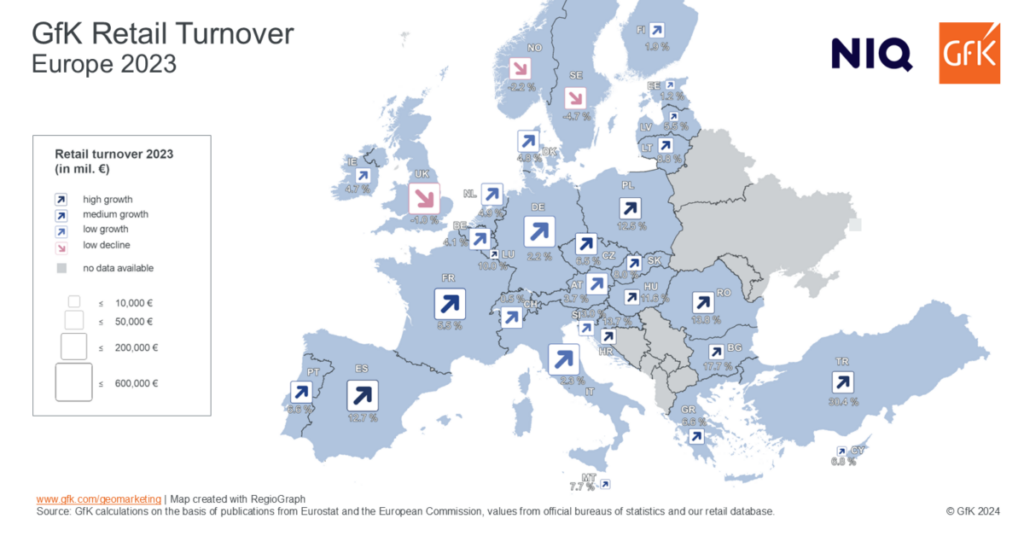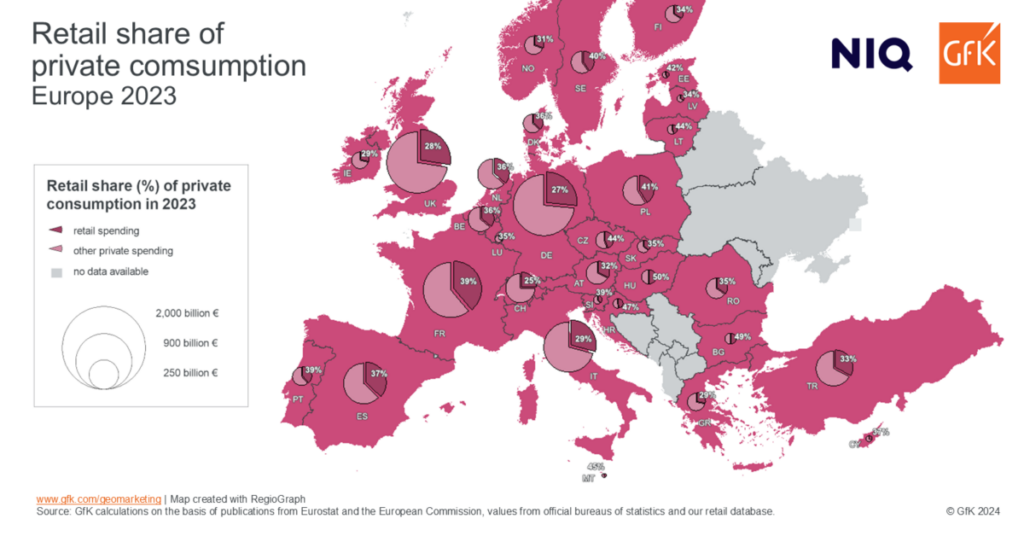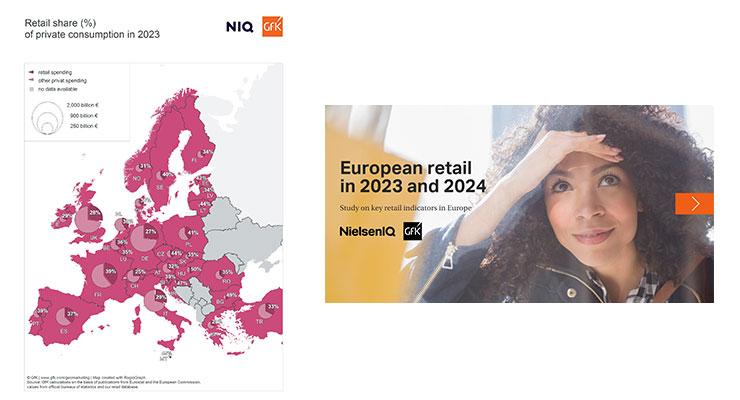The share of private consumption that goes into retail and is not spent on savings, services or leisure is slowly returning to pre-pandemic levels in the European Union. In 2023, a decline was recorded for the second year in a row, with EU citizens now only spending 33.9 percent of their money in retail. The highest share is in Hungary, where every second euro is spent in retail. These are the latest findings published today by GfK in a new, free study on retail in Europe.
After the retail share of private consumer spending rose in 2020 and 2021 due to the pandemic, it fell again in the last two years. In 2023, EU citizens spent 0.5 percent less money in retail than in the previous year, despite an increase in purchasing power and retail turnover of 5.5 percent respectively.
However, the retail share of private consumption varies greatly from country to country. In many Eastern European countries, almost every second euro is spent on retail, especially in Hungary (50 percent), Bulgaria (49 percent) and Croatia (47 percent). The EU’s last place is occupied by Germany, where only just under 27 percent of consumer spending flows into the retail sector.
In the free European retail study, GfK’s Geomarketing department examined the key indicators of the European retail sector for the year 2023. The study offers comprehensive trend analyses for numerous European countries, offering a valuable point of reference for retailers, investors, and project developers.
Additional key results at a glance
Purchasing power: After the purchasing power of EU citizens rose by 7 percent in 2022, net disposable income increased significantly again in 2023. Across the EU, per capita purchasing power averaged 19,786 euros, which corresponds to a nominal increase of 5.5 percent. In total, the inhabitants of the 27 member states had around 8.9 trillion euros in purchasing power at their disposal, which could be used for food, housing, services, energy costs, private pensions, insurance, vacations, and mobility.
Retail turnover: Just like purchasing power, retail turnover in the 27 EU member states rose by 5.5 percent. However, this nominal increase in turnover is put into perspective in view of high consumer prices, which are due to persistently high costs for energy, fertilizer and animal feed as well as geopolitical uncertainties. The highest growth rates within the EU were observed in Eastern European countries such as Bulgaria (+18 percent), Romania (+14 percent) and Croatia (+14 percent), but larger markets such as Spain and Poland also recorded growth rates of over 12 percent.

Inflation: Even though inflation in the 27 EU countries had already fallen in 2023, the level remained quite high at 6.4 percent. The forecast for 2024 is 2.7 percent. This means that the European Central Bank’s target of 2 percent will not yet be reached, but price increases will still be much more moderate than in 2022 and 2023. Belgium is the only country where inflation is expected to be higher in 2024 than in the previous year.
European consumers’ fears and adaptation strategies: The various crises have had a lasting impact on people’s lives. The concerns of the European population have changed and consumers have adapted their spending behavior accordingly. A common saving measure is the purchase of private labels, although this is more widespread in countries with greater purchasing power than in Eastern European countries. In countries such as Spain, the Netherlands, the United Kingdom and Germany, the share of private label purchases of fast-moving consumer goods, i.e. food and drugstore products, is over 40 percent, with Spain leading the way at 47 percent.

You can download the GfK study here:







